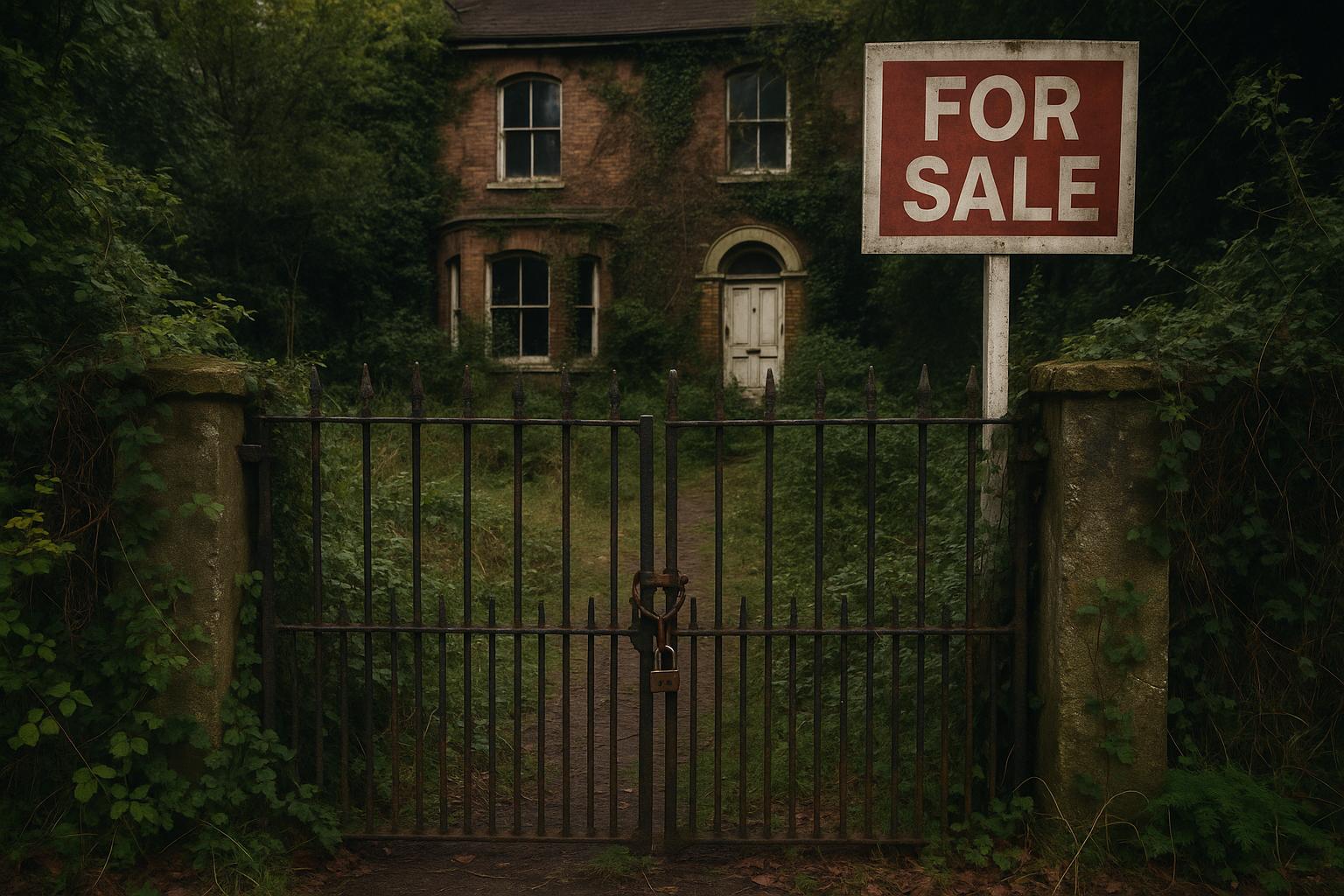Property prices across southern England have been experiencing a notable decline over the past year, with recent data revealing a widespread fall in asking prices amid a backdrop of economic uncertainty and higher borrowing costs. According to Rightmove, the average price of newly listed homes in southern England, which includes London, the South East, the South West, and the East of England, has all decreased, reflecting softened buyer confidence. London has seen the steepest drop, with asking prices down 1.4% year-on-year, closely followed by falls in the South West (1%) and South East (0.8%). The East of England has also recorded a modest decline of 0.6%. The average asking price across the country stands at approximately £371,422, although it increased slightly by 0.3% month-on-month in October.
This downward trend contrasts with some regional pockets elsewhere in the UK, where prices have held steady or even risen slightly. Government figures from the UK House Price Index indicate that the average property price in the country fell by 0.7% from September to October 2023, with an annual drop of 1.2%, placing the average UK property value at around £288,000. Within England, average prices in October were recorded at £306,000, down 1.4% compared to the previous year. London experienced the most significant annual decrease among the regions, with prices falling by 3.6% to an average of £516,000, highlighting the pronounced cooling effect in the capital. Meanwhile, the South West was an outlier with a modest monthly rise of 0.9%, and the North East even saw a slight annual increase of 0.2%, underscoring the regional disparities in the housing market.
Multiple factors are contributing to this downturn, notably the high levels of available housing stock, which Rightmove reports are at a decade-long peak, especially across southern England. This abundance of choice in the market has shifted power to buyers, who can negotiate more aggressively. The end of the stamp duty holiday in April with lowered thresholds has disproportionately affected southern buyers, where property prices tend to be higher, increasing the upfront costs of purchasing a home. These financial pressures are compounded by rising mortgage costs, despite some recent declines in rates. Persistently high inflation, recorded at 3.8%, has slowed the expected reductions in borrowing costs, leaving many prospective buyers hesitant.
Market insiders attribute the slump not only to affordability but also to heightened uncertainty surrounding forthcoming economic policies. The upcoming Autumn Budget, anticipated to be announced by Chancellor Rachel Reeves, has sparked speculation about potential new property taxes or reforms to the stamp duty system, possibly introducing a property tax model or spreading stamp duty payments over several years. This uncertainty is causing many buyers to adopt a “wait and see” approach, further dampening market activity.
Estate agents report cautious trading conditions. Marc von Grundherr of Benham and Reeves noted that while interest in London properties remains, buyers are reluctant to commit without clearer signs of affordability. Nathan Emerson, chief executive of Propertymark, highlighted that price sensitivity and political uncertainty ahead of the Budget have slowed the market, particularly in the south. Sellers are having to adopt realistic pricing strategies to attract buyers in this cautious environment.
Despite the slowdown, some experts believe momentum will return once budgetary clarity is provided. Von Grundherr anticipates that London will eventually outperform other regions, consistent with historical trends once economic confidence rebuilds. Mortgage rates, which have plateaued ahead of the Budget, are not expected to decrease significantly until after the announcement, with lenders cautious about any policy impact. Matt Smith of Rightmove pointed out that, despite challenges, current mortgage rates remain lower than last year, and combined with improved lending criteria, many buyers may actually find affordability conditions better than in the recent past.
In summary, the southern England housing market is currently navigating a complex mix of high supply, stretched affordability, and policy uncertainty, leading to a stagnation or slight fall in prices. Regional contrasts remain notable, with London and the South facing more pronounced challenges compared to some northern regions. The forthcoming Budget announcements will be critical in shaping the near-term direction of house prices and buyer activity across the UK.
📌 Reference Map:
- Paragraph 1 – [1], [4], [5]
- Paragraph 2 – [2], [3], [4], [5], [6]
- Paragraph 3 – [1], [4]
- Paragraph 4 – [1]
- Paragraph 5 – [1]
- Paragraph 6 – [1]
- Paragraph 7 – [1]
- Paragraph 8 – [1]
Source: Noah Wire Services
